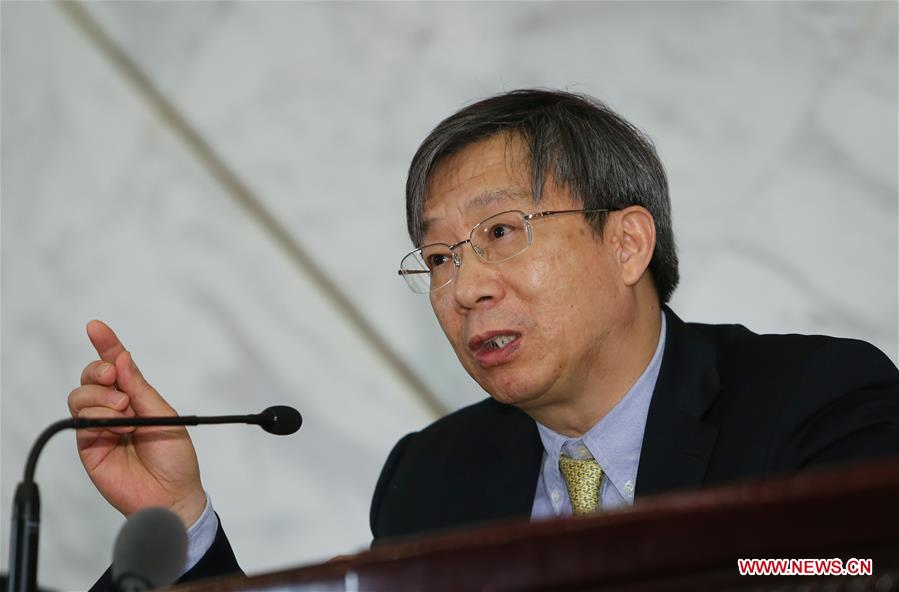


Yi Gang, a member of the 12th National Committee of the Chinese People's Political Consultative Conference, answers questions during a press conference on the supply-side structural reform at the Great Hall of the People in Beijing, capital of China, March 6, 2016. (Xinhua/Chen Junqing)
BEIJING, March 6 -- China's significant foreign reserves reduction largely went to its citizens and companies, central bank deputy governor Yi Gang said at a press conference Sunday.
"China's foreign reserves declined by about half a trillion U.S. dollars in 2015," said Yi. "Mainly, the reserves went to Chinese citizens and companies."
Last year, deposits of U.S. dollars within China increased by tens of billions. Banks increased their stack of greenbacks by around 100 billion, and corporate debts denominated in U.S. dollar dropped by around 100 billion, said Yi.
Corporate and individual outbound payments in foreign currencies surpassed inbound payments by 240 billion U.S. dollars last year, Yi said.
Major outbound payments include tourism, education and consumption expenditures.
Plus, the U.S. dollar appreciated against other currencies last year, Yi added.
"By and large, the majority of foreign reserve losses can be explained by the gains made by citizens and companies," Yi said.
Yi was asked about China's foreign reserves twice at a press conference on the sidelines of the fourth session of the 12th Chinese People's Political Consultative Conference (CPPCC) National Committee, of which he is a member.
China's foreign reserves are diversified, he said, reflecting China's trade, investment and payment structures.
Moreover, China follows the standards set by the International Monetary Fund when calculating foreign reserves, Yi said, stressing that assets that lack in liquidity were not included.
Day|Week

 Qiandaohu supply ship named 'model ship' by PLA Navy
Qiandaohu supply ship named 'model ship' by PLA Navy Stunning Kuche on the Silk Road
Stunning Kuche on the Silk Road Tunisian man creates art of sand in Hangzhou
Tunisian man creates art of sand in Hangzhou Goddess teacher shares fitness program online
Goddess teacher shares fitness program online Getting close to PLA's easternmost post on the mainland
Getting close to PLA's easternmost post on the mainland 'Naked run' race held in Beijing
'Naked run' race held in Beijing Train Attendant Recruitment Held in East China
Train Attendant Recruitment Held in East China In pics: Russia's Su-35 fighter jets
In pics: Russia's Su-35 fighter jets Young monks learn kungfu in NE China temple
Young monks learn kungfu in NE China temple Scenery of Guzhu, thousand-year-old ancient village in E China
Scenery of Guzhu, thousand-year-old ancient village in E China